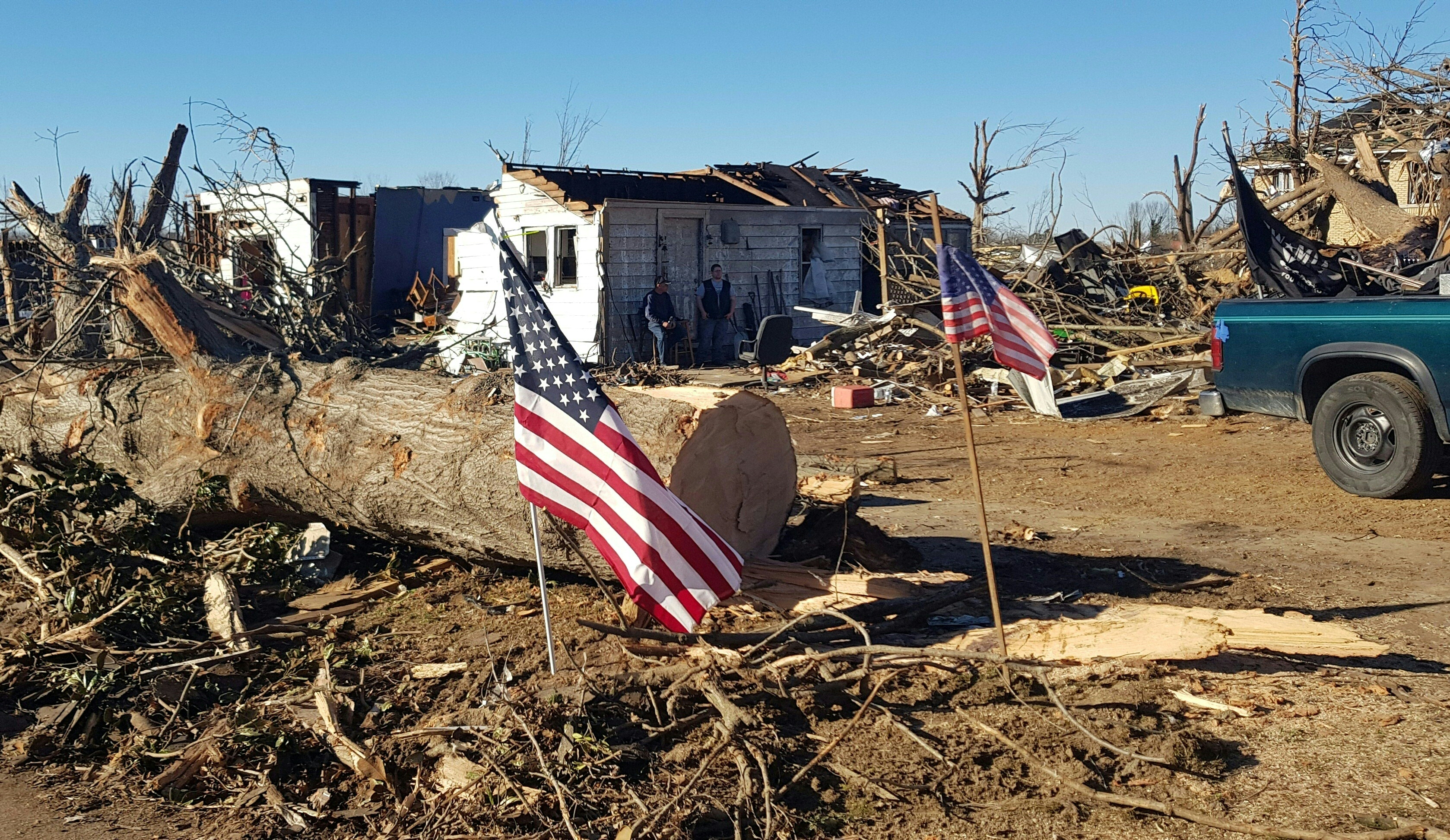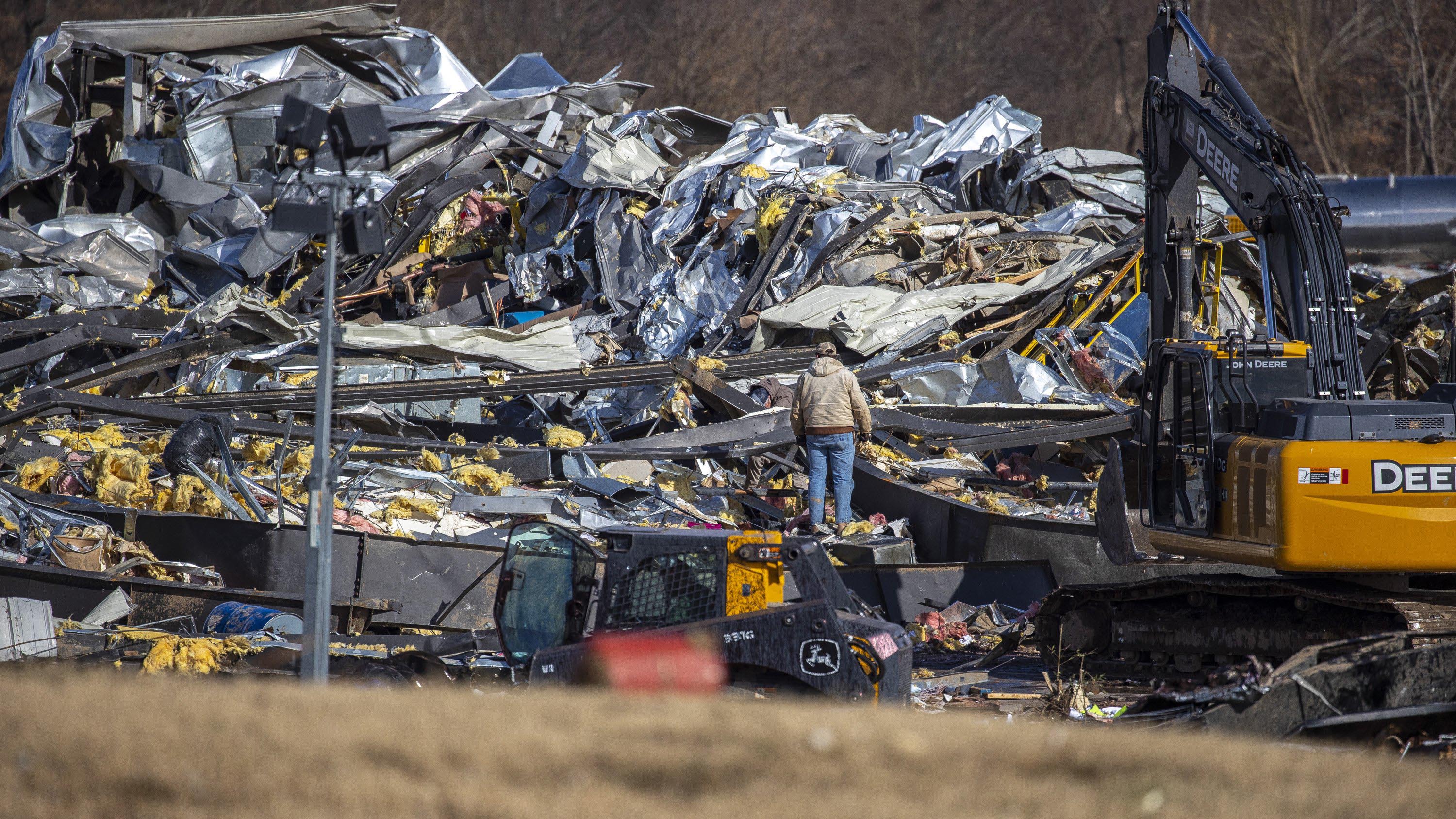Residents of Kentucky counties where tornadoes killed dozens of people could be without heat, water or electricity in frigid temperatures for weeks or longer, state officials warned Monday, as the toll of damage and deaths came into clearer focus in five states slammed by the swarm of twisters.
Kentucky authorities said the sheer level of destruction was hindering their ability to tally the damage from Friday night's storms. At least 88 people — including 74 in Kentucky — were killed by the tornado outbreak that also destroyed a nursing home in Arkansas, heavily damaged an Amazon distribution center in Illinois and spread its deadly effects into Tennessee and Missouri.
Beshear added that 109 people were unaccounted for with dozens of those missing feared dead.
More Tornado Outbreak Coverage
In Kentucky, as searches continued for those still missing, efforts also turned to repairing the power grid, sheltering those whose homes were destroyed and delivering drinking water and other supplies.
“We’re not going to let any of our families go homeless," Beshear said in announcing that lodges in state parks were being used to provide shelter.
President Joe Biden said Monday that he will travel to Kentucky on Wednesday to view the damage. The White House said he would visit Ft. Campbell, Kentucky for a briefing on the response operations, and then to hard-hit Mayfield and Dawson Springs to survey the damage.
In Mayfield, one of the hardest-hit towns, those who survived faced a high in the 50s and a low below freezing Monday without any utilities.
“Our infrastructure is so damaged. We have no running water. Our water tower was lost. Our wastewater management was lost, and there’s no natural gas to the city. So we have nothing to rely on there,” Mayfield Mayor Kathy Stewart O’Nan said on ”CBS Mornings.” “So that is purely survival at this point for so many of our people.”
Across the state, about 26,000 homes and businesses were without electricity, according to poweroutage.us, including nearly all of those in Mayfield. More than 10,000 homes and businesses have no water, and another 17,000 are under boil-water advisories, Kentucky Emergency Management Director Michael Dossett told reporters.
Dossett warned that full recovery in the hardest-hit places could take not just months, but years.
“This will go on for years to come,” he said.
Photos Show Devastated Communities in Aftermath of Deadly Tornadoes
Kentucky was the worst hit by far in the cluster of twisters across several states, remarkable because they came at a time of year when cold weather normally limits tornadoes.
Initially as many as 70 people were feared dead in the Mayfield Consumer Products candle factory, but the company said Sunday that eight deaths were confirmed and eight remained missing, while more than 90 others had been located.
“Many of the employees were gathered in the tornado shelter and after the storm was over they left the plant and went to their homes,” said Bob Ferguson, a spokesman for the company. “With the power out and no landline they were hard to reach initially. We’re hoping to find more of those eight unaccounted as we try their home residences.”
Debris from destroyed buildings and shredded trees covered the ground in Mayfield, a city of about 10,000 in western Kentucky. Twisted sheet metal, downed power lines and wrecked vehicles lined the streets. Windows were blown out and roofs torn off the buildings that were still standing.
Four twisters hit Kentucky in all, including one with an extraordinarily long path of about 200 miles (322 kilometers), authorities said.
In addition to the deaths in Kentucky, the tornadoes also killed at least six people in Illinois, where an Amazon distribution center in Edwardsville was hit; four in Tennessee; two in Arkansas, where a nursing home was destroyed and the governor said workers shielded residents with their own bodies; and two in Missouri.
Pope Francis expressed his sadness over the “devastating impact” of the tornadoes. In a telegram sent Monday by Vatican secretary of state, Cardinal Pietro Parolin, the pope offered prayers for those who died, “comfort to those who mourn their loss and strength to all those affected by this immense tragedy.”
Schreiner reported from Dawson Springs, Kentucky. Associated Press writers Kristin Hall in Mayfield; Seth Borenstein, Zeke Miller and Dino Hazell in Washington; Travis Loller in Nashville, Tennessee; and Rebecca Reynolds in Louisville, Kentucky, contributed to this report.



